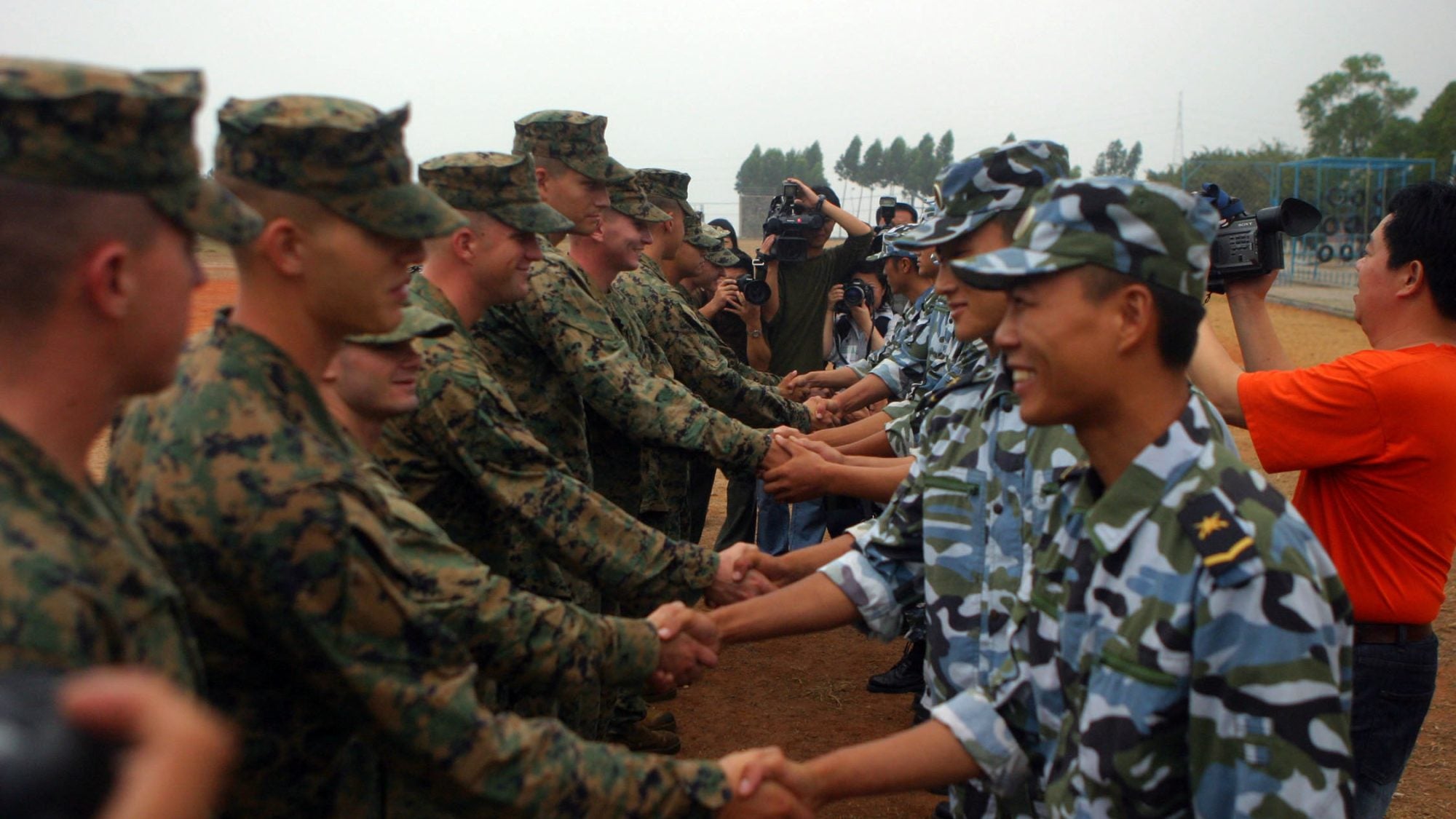
Title: The Future of U.S.-China Relations: Five Minutes with Ambassador James Keith
Former U.S. Ambassador James Keith recently sat down with the Georgetown Journal of International Affairs to discuss China’s leadership transition and U.S. policy towards China.
GJIA: China will be undergoing a leadership transition over the next several months. What kind of changes, if any, should we expect from the new Chinese leadership?
JK: Well, it seems to me there are two points to make on that. The first one is continuity. This is a leadership transition and there is definitely change from one group to another. On the other hand, this is not really a new set of leaders. These are people who have been part of the decision-making process and will continue very much the same thrust of what had been going on before, according to most observers.
But the second point to make is this new leadership will have some really big challenges to face and perhaps sooner rather than later. I think the conventional wisdom has been that the new leadership will come and it will take them some time to get settled, create their networks, and gradually start to make some decisions. I suspect reality won’t allow for that, they will have to jump right in almost from the beginning. The beginning, being in the late spring or early summer next year, as the National People’s Congress concludes and new officials are put in office.
I think there is a sense that China faces some pretty tough decision on its economy related to the success of the economic model of the last 20 years or so and a sense that it is bumping up against some real, rigid boundaries and that it’s going to take some changes for China to succeed. Those changes will have to come from the new leadership
GJIA: In the U.S. we are having an election and maybe a leadership transition. China is discussed much in the campaign, usually in a negative way. How, if at all, would U.S. policy towards China change either in a second Obama administration or a Romney administration?
JK: Of course, it is crystal ball thinking so one doesn’t know. But based on the past, we can certainly say that the Republicans run on right in the primaries and then come back to the center and govern from the right of center on China policy and the Democrats do the same on the left. It has certainly been true that there was continuity through the Bush administration into the Obama administration on China policy.
Despite the fact that Carter had some very clear ideas about human rights that he thought would affect China policy, things changed when he started to govern. Same for Reagan with regard to Taiwan. Same for Clinton who came in linking human rights and trade but over the course of his two terms came to a different position.
So, the national interest I hope, think, and predict, will drive U.S. policy toward China. Those national interests have been enduring and are fairly self-evident even in the states of those congressional members who speak most vocally about U.S.-China trade policy. The track record and their constituents’ interests will likely move them toward the center.
GJIA: If you were to advise a new administration what would you suggest their top priorities be in terms of U.S.-China policy?
JK: Well, I think continuity is something to be desired. It is a fairly conservative leadership in China by its own historical standards. In other words, these are not radicals who are going to go over the heads of fellow government leaders and appeal to the masses and start mass movements. It’s not to say instability in China is impossible, it’s just to say it is unlikely in the short- to medium-term. If they were able to get through some of these tough political decisions that relate to how the economy can grow and how society is organized to grow at its maximum, I think we could get to a much more aligned agenda.
In general, I think my advice would be to ensure that our approach to China is firmly embedded in our approach to the region, which is itself grounded in economic relationships. It’s the economic motivations that should drive our policy because that’s how we can improve the lives of the American people. Of course, security is a part of this but it is the foundation or ground on which we stand to make economic advances. It’s the advances in the economic, trade, and financial policy, which not only improve the quality of life for Americans but contribute to the stability and prosperity of the region as well.
Then, there is a third policy area we often talk about and which is often mischaracterized as human rights. Human dignity is, of course, part of foreign policy and American values will always be imbedded in our foreign policy decisions. But, I think it is much more productive to talk and think about this basket of issues in the context of the rule of law and promotion of civil society and good governance because that’s something we can talk about in terms that create common ground. For China to grow at anywhere near its maximum potential it needs to recognize the potential of all of its citizens and that means more transparency and accountability on the part of government and fairness and justice be delivered to its citizens. All of that is not human rights by an American template, but rather the development of good governance and the institutions of a society and an economy that can keep pace with the rest of the world and compete and grow at a level that the Chinese say they want to aim for.
. . .
Ambassador James Keith is currently Senior Director at McLarty Associates in Washington D.C. Prior to that, Ambassador Keith had a 31-year career in the U.S. Foreign Service during which he served as U.S. Ambassador to Malaysia, Deputy Assistant Secretary of State for China, National Security Council Director for China, and Consul General in Hong Kong.
This interview was conducted by Matt Sullivan.
Image Credit: U.S. Marine Corps photo by Lance Cpl. Jeremy J. Harper, Public domain, via Wikimedia Commons.
This is an archived article. While every effort is made to conserve hyperlinks and information, GJIA’s archived content sources online content between 2011 – 2019 which may no longer be accessible or correct.
Recommended Articles

Cruises have increasingly become a popular choice for families and solo travelers, with companies like Royal Caribbean International introducing “super-sized” ships with capacity for over seven thousand…

In March 2025, widespread protests erupted across Türkiye following the controversial arrest of former Istanbul Mayor Ekrem İmamoğlu, an action widely condemned as politically motivated and…

In this interview, GJIA sits down with Jojo Mehta, Co-Founder and Chief Executive of Stop Ecocide International, to discuss the global movement to codify ecocide as an international…